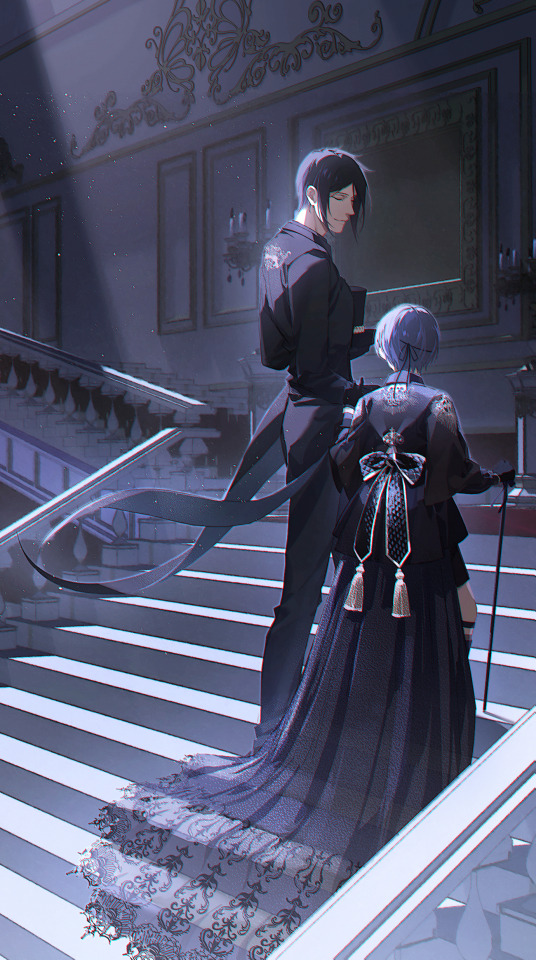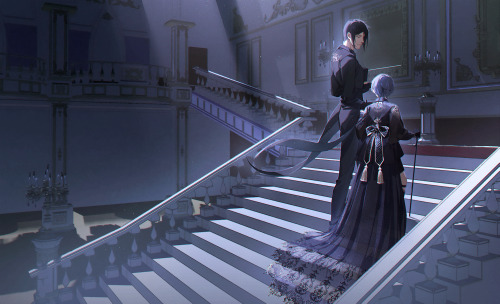It's Going To Be A Story About Selina Adopting Harry Due To Circumstances And All That Jazz. So It's
It's going to be a story about Selina adopting Harry due to circumstances and all that jazz. So it's going through all seven years of Hogwarts and Harry gets sorted into Slytherin via coin toss. Draco is a brat who doesn't understand why Harry doesn't like him (at first) and it is the cutest thing ever. Like their first meeting at Malkin's is just the best thing ever! I love my mind! 🥰
Writing a self indulgent Harry Potter Batman crossover fanfic with Drarry as the main pairing is so much fun actually. Should have done this sooner
More Posts from Rebelharkness and Others
So I'm thinking about the Fourteenth Doctor, and the bi-generation, and how he may have come to an end. What happened to him after those years he spent with Donna and her family, and with so many other friends on Earth (oh, I am headcanon-ing, friends), existing day-to-day and beginning to heal? After he learned how to let himself be loved, and shown compassion, and forgiven—and, eventually, learned to love, forgive, and care for himself? What happened when, at the end of this journey, his regeneration energy (I assume?) traveled back (in some hand-wavey fashion) to become the Fifteenth Doctor, who is born out of that love and forgiveness and compassion and is ready to move forward in the universe?
Fourteen becomes Fifteen—but what about the TARDIS?
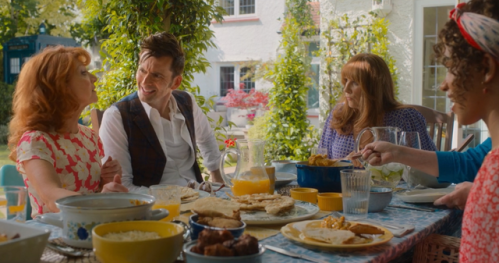
Fourteen's TARDIS was created for the same reason Fourteen was: they needed to slow down, to be gentle. They needed to find a home that wasn't moving at the speed of light. So maybe this TARDIS is a little gentler, too. Maybe she's a little more careful of herself and her charges.
When Fourteen takes Rose to Mars, they land right where they're supposed to, and Rose sees wonders. Nothing bad happens, and they return home five minutes after they left.
When Shaun wants to see a football match from 1988, he opens the TARDIS door and she takes him right there, flying all by herself, to Fourteen's chagrin.
When Fourteen takes Mel to New York, they have adventures that don't involve running, or hiding, or screaming with anything but laughter. When Fourteen takes Jo, Ace, and Tegan to the Jurassic era, the only danger he faces is when he makes an age joke.
When, after Sarah Jane dies (yeeeears in the future, tyvm), Fourteen takes Luke, Maria, Clyde, and Rani to see Florana—the place he promised to take Sarah Jane all those years ago—the TARDIS chooses the safest, most beautiful moment in time for them to honor her memory.
When Donna and Martha and Yaz and Shirley sneak in for a joyride, they have the time of their lives, and the TARDIS covers for them. (Fourteen suspects, but can't prove it.)
When Fourteen is struggling, and chafing at life on Earth, and just needs to run, to fix things, to solve puzzles, to get away from the day-to-day of it all, the TARDIS lets him. She takes him so many places he's never been before, and they're all beautiful and wild and remind him what he loves about the universe.
(He tries, a few times, to go places that might bring him pain, and she gently refuses.)
And every now and then, someone will try to get in. This TARDIS doesn't have a key; she just opens to those in her care, and refuses entry to those she doesn't trust. She is safe, and so are they.
When Donna's in her eighties and can't get around as easily, the TARDIS takes her where she can manage. When Rose is overwhelmed with the pain of the world, the TARDIS takes her to places where none of that pain exists, and lets her stay as long as she needs to.
They live magnificent lives, and the TARDIS takes care of them. And then, at the end of it, Fourteen is ready for what comes next, and he becomes Fifteen. There's only one Doctor again.
But this TARDIS...
I think she stays, right in the corner of that yard. She leaves and then lands so precisely that roots and ivy grow over her. The Doctor is gone, and eventually Mel and Sarah Jane and Jo and Donna and Martha and everyone that traveled with the Doctor once upon a time in a different TARDIS are gone too.
But Rose is still there. Luke, Maria, Rani, and Clyde are still there. Their families, their kids. The TARDIS opens to them, and shows them the universe. She takes them only where she chooses to, and it's always exactly where they need to go.
She always takes them home, to the garden that once belonged to Donna Noble.
The Doctor finds new companions. Some of them come home to Earth after awhile, but they're not stuck dreaming of the universe. You showed me the furthest reaches of the galaxy, Sarah Jane said. You showed me supernovas, intergalactic battles, and then you just dropped me back on Earth. How could anything compare to that? We get a taste of that splendor, but then we have to go back.
These new companions, they return to Earth and their lives there, but every now and then, they swing by that old house that the Noble family has lived in for generations. They say hello to this old/new box, and she invites them in.
They don't have to say goodbye to the universe. She's right there in Chiswick, waiting for them.
And sometimes—on rare occasions, when they need it, or when he (or she, or they) does—she takes them to the Doctor.

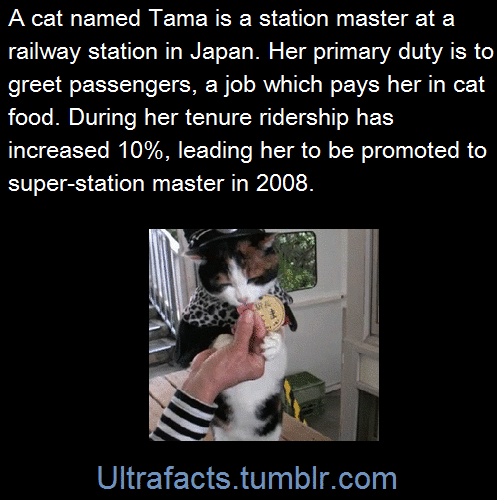
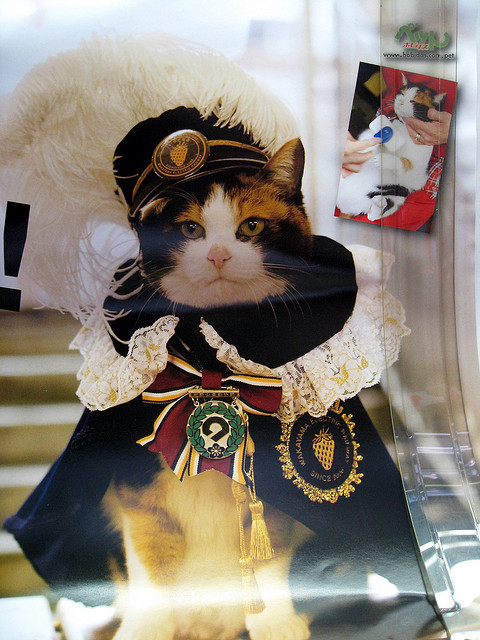
Source
Video of Tama
Follow Ultrafacts for more facts


HAPPY RWBY EVE!!!!!!!!!


Shí QingXuan and Xie Lian in turquoise and blue 🩵💙
Based on the promo and what we’ve seen of Ruby so far, I need a return to Oobleck’s questions about why each of them wanted to be a huntress. What drives you now? Where do you see your life going? What are you going to do?
Give me that sweet, sweet introspection and character growth.


slay, i guess?????
instagram ( instagram.com/fishermanarts ) twitter ( mobile.twitter.com/fishermanarts ) side twitter ( mobile.twitter.com/fishermantalks ) shop ( www.etsy.com/shop/FishermanArtsStudio ) ko-fi ( ko-fi.com/fishermanarts )
Character Development: Speech
Finding your character’s voice is one of the most important things you can do to make your character more fully developed. It can often be the thing that sets your character apart and makes the reader easily able to identify them. Creating your character’s voice breathes life into them.
What to think about:
Formal or informal

Can be shown with:
sentence structure/complexity (shorter vs. longer sentences, number of clauses, etc.)
contractions (e.g. y’all versus you guys, I am vs. I’m)
word choice (simple or advanced; more poetic vs. more practical, blunt vs. subtle)
word order/syntax (can indicate dialect and/or formality)
Things to ask yourself:
- If my character speaks formally/informally, is there a reason?
- Does it indicate their status?
- Or is it a rejection of their status? (e.g. does your highborn character prefer to speak informally because they hate their position in life, or does your lower class character speak more formally to make themselves appear higher class?)
- Is the way they speak normal for their society? In other words, if your character is, say, an alien from a highly formal culture, they won’t think of themselves as speaking abnormally. But if they visit another, less cultured planet, they’ll stick out like a sore thumb.
Catchphrases

When done well, this can be amazing. When done awfully, it makes the reader sigh and roll their eyes in exasperation. So, be careful not to overdo it!
Catchphrases can include:
slang (e.g. wicked, if your character is from Boston, like Faith Lehane from Buffy: the Vampire Slayer)
exclamations/swears (”Hell’s bells!” - Harry Dresden, “Zoinks!” - Shaggy, “Holy ___, Batman!” - Robin at various times)
automatic responses (such as in response to how they are, e.g. “Five by five.” - Faith Lehane, or in response to a question they don’t want to answer, e.g. “Spoilers!” - River Song)
greetings/goodbyes (”Hello, sweetie.” - River Song, “What’s up, Doc?” - Bugs Bunny)
introducing themselves ( “The name’s Bond. James Bond.” - James Bond, “Trust me. I’m the Doctor.” - the Doctor, “Denny Crane,” said repeatedly by Denny Crane)
an explanation/repeat phrase of some other classification (”Dammit, Jim, I’m a doctor, not a ________.” - Bones, “Your mission, should you choose to accept it…” - Mission Impossible, “Live long and prosper.” - Spock, “Same thing we do every night, Pinky! Try to take over the world!” - the Brain)
A lot of times, these catchphrases can become inside jokes, and merely referencing them is enough (think: “It’s a bird! It’s a plane! It’s Superman!” or “Holy _______, Batman!”).
But sometimes, it can feel a little forced (like Miss Martian’s constant use of “Hello, Megan!” all the time in Young Justice). You want to use these catchphrases sparingly, and when they make sense. While you and I might say “fudge” or another such exclamation any time we trip, the reader does not want to read that twenty times in the same chapter because your character is a klutz. This is the art of writing, not the hyperrealism of writing. You want it to mean something, so use it only when needed.
Things to ask yourself:
- Does this character really need a catchphrase? How will this help establish character?
- Does the catchphrase come from the type of place they live or things they do? For instance, Harry Dresden is a wizard, so when he swears he says, “Hell’s bells,” which reminds us of his job and difference from those around him. This wouldn’t be the same if he simply said, “Dang it,” any time he swore.
- Is there a reason they have a catchphrase? Is it deliberate or unconscious on their part?
- Is there a way you can flip the catchphrase and use it to signal a shift in the story or an unexpected twist (e.g. signifying that somehow your character as switched bodies with another person, like Faith from Buffy: the Vampire Slayer; alternatively, that something isn’t right with the character, because of certain events, and they’re not saying their usual catchphrase)?
Verbal Tics*

Verbal tics are sounds that are not really words, more like filler, that get used almost unconsciously in everyday speech. Words like “ehm,” “uh,” and so on are all verbal tics. (Various internet sites assure me that throat clearing and sniffing can also be included here, but I leave that up to you.) For this section, however, I am also including words, but only those words that are filler. I am also including alterations to the text that represent how someone is speaking.
Now, I know that in any writing guide you read, they want you to NOT, NOT, NOT use regular tics like these in dialogue. It’s annoying, repetitive, annoying, serves no purpose, annoying, and so on. In a sense, they are very much right. Don’t use verbal tics for every character! But using them to distinguish one character (or a couple, in different ways) can work very well if done right.
Verbal tics can be:
words (examples: “You don’t wanna mess with us, see, ‘cause we’re dangerous, see,” or “So, I went to the mall yesterday, and there was this dress, so I bought it, so…” or even “Like, I’m not even sure what Vanessa was, like, wearing at that party last night?”)
filler sounds (e.g. “eh,” “um,” “uh,” “er,” “hrrgh,” “urk,” and so on)
messing with the letters and format of the sentence (e.g. dragging out the letter, making every word separated for a slow speaker, running words together to indicate speed, etc.)
Examples of verbal tics (this is a section in which examples are very helpful, so here you go):
Damian Wayne, the current Robin at DC Comics: uses the distinctive sound “tt” in his appearances to express his emotions, even - tt - other comic series that he guest-stars in
Asmodeus from the Redwall series: drawsss out the letter ssss becaussse he isss a ssssnake
The Flash, at various points in DC Comics: speakswithallthewordstogetherbecausehe’stalkingsofast!!!
Canada, from the Hetalia anime: ending every sentence like a true Canadian, eh?
Things to ask yourself:
- What purpose would a verbal tic have for my character? Do they really need one?
- Is the verbal tic connected to an emotion, or is it involuntary? (Generally, in real life, it is involuntary, but once again, this is art, and so it can have meaning, if you so choose!) What emotion might it be connected to?
- Are they aware of it? Are they embarrassed by it? Do people make fun of them for it?
- Is it part of their dialect/culture?
- Is it a recent thing or have they always done it?
- Where is the balance between making it seem like a realistic tic and annoying my reader with the repetitiveness?
*I am not referring to any medical diagnoses here, although if you want to go right ahead and use medically diagnosed tics for a character, please feel free to! However, this section does not deal with those, as I am not an expert, although I understand there might be some confusion due to the terminology I have used. Please let me know if there is a different term I should be using instead, as I couldn’t find one anywhere. Thanks!
Ways of addressing others

The way that your character addresses other characters says a lot about how they view and respect those around them, in addition to their personality. In addition, if you establish a character addresses others in a certain way (say, by last name only), then when they break this pattern, the reader knows it is important.
Different ways of addressing others:
nicknames (either a shortening of someone’s name, even if it’s not usually shortened, or a name reflecting some characteristic of theirs - e.g. “Jane” to “Janie,” or “Shorty,” or Tony Stark’s brand of nicknames, like “Capsicle” or “Rock of Ages”)
titles (similar to nicknames, but more formal - e.g. a character referring to people by their rank, job, familial relations, etc.)
last name only
full name only (never shortened, includes first, last, and middle names)
no nicknames (never refers to a character by anything other than what’s printed on their birth certificate, can be combined with others on these lists, especially the previous two)
familial referencing (e.g. Aragorn, son of Arathorn)
insults (ranging from harmless to aggressive, can be combined with the first one on this list, not always swears)
by physical/personal characteristics [epithets]** (e.g. by gender, hair color, eye color, traits - for instance, “boy,” “you, redhead!” or “the only one of you with any spine”)
** This one tends to work best in stories set in older times or in sci-fi/fantasy. Epithets can be insults, but the epithets I am thinking of are more Homeric in nature.
Things to ask yourself:
- Is there a reason behind my character’s decision to address people in this way? Does it indicate a lack of trust? A need to crack jokes?
- What does this say about my character’s background? Is this the normal way to address people where they come from? Is it abnormal to do so in the place they are now?
- Does my character evolve from speaking this way? Do they start speaking in a different way, either deliberately or unconsciously? Why?
Accents

Accents are tricky. There are several different ways to write accents (I’m currently working on a post that explains them further), but basically no matter how you write an accent, there are a few things you can do to portray the accent.
slang (e.g. barbie = barbecue in Australian slang)
word order/syntax (e.g. “I’m after going to Mary’s” = “I just went down to Mary’s” in Hiberno-English)
contractions (I’ve versus I have, or y’all versus ye vs youse vs you and so on)
idioms (words or phrases that do not have equivalents in other dialects/languages/places)
diction (words meaning different things, like “chips” in American English and in British English)
verbs (e.g. “ain’t,” “be,” “runnin,” or mixing up tenses)
Keep in mind:
- be RESPECTFUL of whatever accent you’re trying to portray, especially if it’s not your accent
- don’t overdo the accent because it might end up sounding stereotypical (and that is not respectful - see above)
- you should get a feel for the accent you’re trying to write. Listen to the music, read something in that accent, watch/listen people talk in the accent until you hear the rhythm and way people with that accent talk.
Things to ask yourself:
- Is the way I am portraying this accent as accurate as it is within my power to make it? (In other words, have I done my research?)
- How does my character feel about their accent? Are they in a place where their accent is normal? Are they in a place where they stand out because of their accent?
- Continuing on that thought, how noticeable is their accent? Is it the equivalent of someone from, say, Boston going somewhere else in Massachusetts, or the equivalent of that person from Boston going to California, or the equivalent of that same person going to London? Each one becomes more and more noticeable the farther the person goes from their home.
- Has my character made an attempt to hide their accent? Deliberately intensify it? Or do they just not care?
- Does it get stronger or weaker based on their emotional state?
Emotion

The emotions your character normally expresses when they’re speaking say a lot about their general emotional state. In addition, if there is a change in their emotional state, readers will be able to know that just from the way they talk (though context and body language are always useful!)
You can show emotion in speech through:
speed (if they’re easily excited, they might talk fast! and with a lot of exclamation points! But if they’re sad a lot…well, they might talk a bit more slowly and take their time…kind of like Eeyore.)
word choice (is it generally positive? negative? Or somewhere in between?)
reactions to other characters’ dialogue (are they generally patient and wait for the other person to finish? Or do they jump in because they’re so excited about something the other person has said?)
volume (are they loud? Quiet? Are they normally quiet but get loud when they’re angry? Or vice versa?)
understandability (not necessarily stuttering or stumbling over words, but can be; are their procession of thoughts/logic easy to understand? Is their conclusion sensible? Are they understanding others easily or do they need clarification? For instance, if your character is easily excited, maybe their dialogue comes in a jumble of words that is hard to understand. Maybe they’re so angry they’re not listening to anything the other person is saying, and their dialogue reflects that.)
punctuation/capitalization (are they unsure of themselves and what they’re saying a lot, so they use a lot of question marks like this? Are they aggressive in their emotions and so THEY SHOUT LIKE THIS!!! Are they…kind of thoughtful and take the time to…express themselves correctly…or are they - well - I mean are they - like - the kind of people who - you know, backtrack and correct themselves a lot?)***
***Again, you want to be careful not to overdo this, as it can get annoying AND lose the effect it has on the reader. If one of your characters SHOUTS. EVERYTHING. THEY. SAY. THEN WHEN SOMETHING REALLY IMPORTANT HAPPENS TO THE CHARACTER AND THEY GET VERY EMOTIONAL AND SHOUT, IT’S LOST A TON OF EMOTIONAL IMPACT ON THE READER. Like the end of that sentence. Did it make a big impact on you? It should - it was the entire point of the sentence. But it was lost amidst all of the other capitalized words. The same thing goes for any type of repeated punctuation/capitalization for a character - you want to make sure it counts.
Things to ask yourself:
- Why does my character express this emotion generally?
- What does it say about their outlook on life?
- What does that say about how they view other people?
- Does their dialogue rely on these techniques too much when trying to show their emotions? How can I combine these with their body language?
Focus/Fixations

This is a pretty simple one. Focus can be organization of thoughts - basically, what idea(s) can they or want to focus on. A character that is very focused might be a practical person who is focused on the here and now, and their plans for whatever situation they’re in. A character that is less focused might be someone who thinks of several things at once, which reflects in their dialogue.
Fixations are the things that their minds keep coming back to. So for example, if a character is worried about how they did on a test, throughout the story their dialogue might keep returning to that subject or referencing it. For instance: “Hey, when do you think we’re getting that test back?” or “Wow, this is pretty hard. Almost as hard as that test we took.” You want to make it less obvious than this, of course! (A good example is Anya from Buffy: the Vampire Slayer and her obsession with making money.)
Ways to show focus/fixation:
number of ideas/topics in their dialogue at a time
relevance of topics to the present
relevance of topics to the past/future
how they react to people who do not share their focus/fixation (e.g. a focused person finds it annoying when a person who is not focused keeps interrupting them, or a person who is less focused finds it annoying that a person who is focused is paying too much attention to one thing)
Things to ask yourself:
- How focused are they when talking?
- Do they think of a million things at once, or just one at a time?
- What are some short-term fixations they might have? Some long-term?
- Why might they be focused/not focused? Why might they have these fixations? What do these fixations say about their character?
- Do the focus/fixations change over time? How? Why? Does it reflect a change in their character?
- Am I making my character too focused/fixated on something? Is it detracting from or adding to the story or the character arc?
How others see them vs. how they see themselves

This one is probably the broadest one on the list. There aren’t specific things you can do to get this across (it’s more of a general thing), but it’s a cycle that you should keep in mind.
Your character sees themselves in a certain way. For instance, they might think of themselves as helpful, or kind.
The way that they see themselves can influence why they do things (e.g. if they see themselves as a person who doesn’t go on adventures, like Bilbo Baggins, they will refuse to go on an adventure.)
The actions that they take influences how other characters see them, but the other characters do not necessarily see your character’s perception of themselves (e.g. in the Hobbit, Bilbo sees himself as helpful and averting war by giving the Arkenstone to the Elves. He thinks he is being a good friend. However, Thorin sees it as a betrayal and thinks Bilbo is disloyal and not a good friend. Both of them at the time of their actions think they are right.)
How other characters see your character influences how they treat your character (e.g. Because Thorin thinks Bilbo has betrayed him, he threatens Bilbo and rejects him as a friend. Bilbo escapes with his life, but only through the help of the other dwarves. Again, to each character, their own actions are justified and so their dialogue reflects their belief that they are right. So, when they talk to each other, both of them think that they are right and the other is wrong, and you can see this in their dialogue.)
How they treat your character influences how your character sees and reacts to these people, and can influence your character’s perception of themselves (e.g. Because Thorin rejected Bilbo and called him a traitor, Bilbo is bewildered and believes for a time that Thorin cannot be saved, and he feels like he failed).
The cycle continues.
All of this is reflected in their dialogue to each other.
Knowing how each of your characters see each other and themselves will influence their dialogue and reactions to each other. Characters can misunderstand each other, underestimate someone, or help someone feel better about themselves, just to name a few things.
Things to ask yourself:
- How does my character see themselves? Why? Are they one hundred percent correct?
- How do other characters see my character? Why? Are they one hundred percent correct?
- Does my character have any idea of other people’s perceptions of them? If so, do they care? Is my character correct about what they think other people think about them?
- Will my character’s perspective of themselves/other people change? Why and how? Will other characters’ perspectives of my characters change? Why and how?
- How do all these reactions to each other influence the story?
Hope this helped! Let me know if there are any questions.
- Riona
-
 nyxy-o7 liked this · 2 years ago
nyxy-o7 liked this · 2 years ago -
 riri1xd liked this · 2 years ago
riri1xd liked this · 2 years ago -
 snails-under-umbrellas liked this · 2 years ago
snails-under-umbrellas liked this · 2 years ago -
 rebelharkness reblogged this · 2 years ago
rebelharkness reblogged this · 2 years ago -
 rebelharkness reblogged this · 2 years ago
rebelharkness reblogged this · 2 years ago

well you can read so (I have a writing blog on here check it out @rwritingblog)
459 posts
